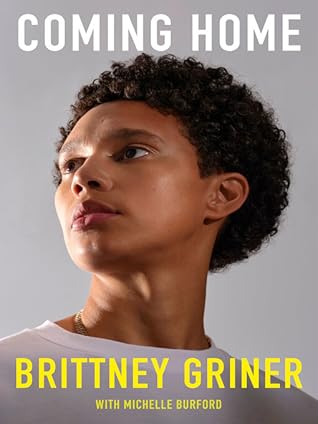More on this book
Community
Kindle Notes & Highlights
English. All the news channels were reporting on my homecoming. It was strange seeing myself on blast. I’d known the world was following my story, but for months I’d felt alone in the horror. And now my private heartache was playing out globally.
The transition from hell to freedom can be overwhelming.
I came home at 222, small for six nine.
We left San Antonio on December 16, nine days before Christmas.
“That’s so Russian,” she kept saying as I told my stories: shitty prison conditions, inmate spies, a letter of repentance to Putin. I relished our joyful reconnection.
We’d known we couldn’t initially return to our home. Our address had been made public during my trial. Not everyone was happy I’d been freed, and it takes only one nut to detonate your world.
We’d assumed that once the story died down, we’d carry on as before. But our before was no longer safe. We’d have to sell our home and look for another.
The harassment began while I was still in prison.
dozens of threatening letters showed up in our mailbox and at the Mercury’s practice facility. “No way should you have been traded for Victor Bout,” someone wrote. “I hope you sleep well at night knowing the Merchant of Death is on the loose. Thousands will now die because a lesbian basketball player was freed.” Another wrote that Paul Whelan, a respectable marine, should’ve been traded instead of “a gay nigger.”
Other transitions followed, like having full-time security.
She’d also addressed the world from a White House podium on the day of my release. With the president and vice president beaming behind her, she said, “Over the last nine months, you all have been privy to one of the darkest moments of my life.” And now the world was privy to our whereabouts. That made us vulnerable.
When your world is violently upended, you don’t just mourn your immediate losses. You also grieve a future that no longer feels possible, the peace that might have been.
Though I’d been surrounded by inmates at IK-2, the language barrier sealed off my world. I was also more of an observer than a talker. That became truer by necessity while I was detained.
Much as Relle loved me, she couldn’t understand my particular pain of being held captive in a foreign country.
I’d made it home, yes, but a part of me felt lost in Russia. And some of my belongings were still there.
On the one hand, I wanted to forget what I’d been through. On the other, I couldn’t turn away.
I’d view news reports and social media. Horrible idea. Many applauded the president’s success in negotiating my freedom. Just as many said I should’ve been left to rot in Russia, while others called the deal “one-sided” and said Paul Whelan, the marine, should’ve been traded instead of me.
An Instagram poster once called me a “gay bitch nigger” and said my mom should’ve strangled me at birth. Once you heard that, not much else stunned. But what did surprise me after my release was the amount of vitriol. Its prevalence nearly broke me.


